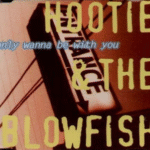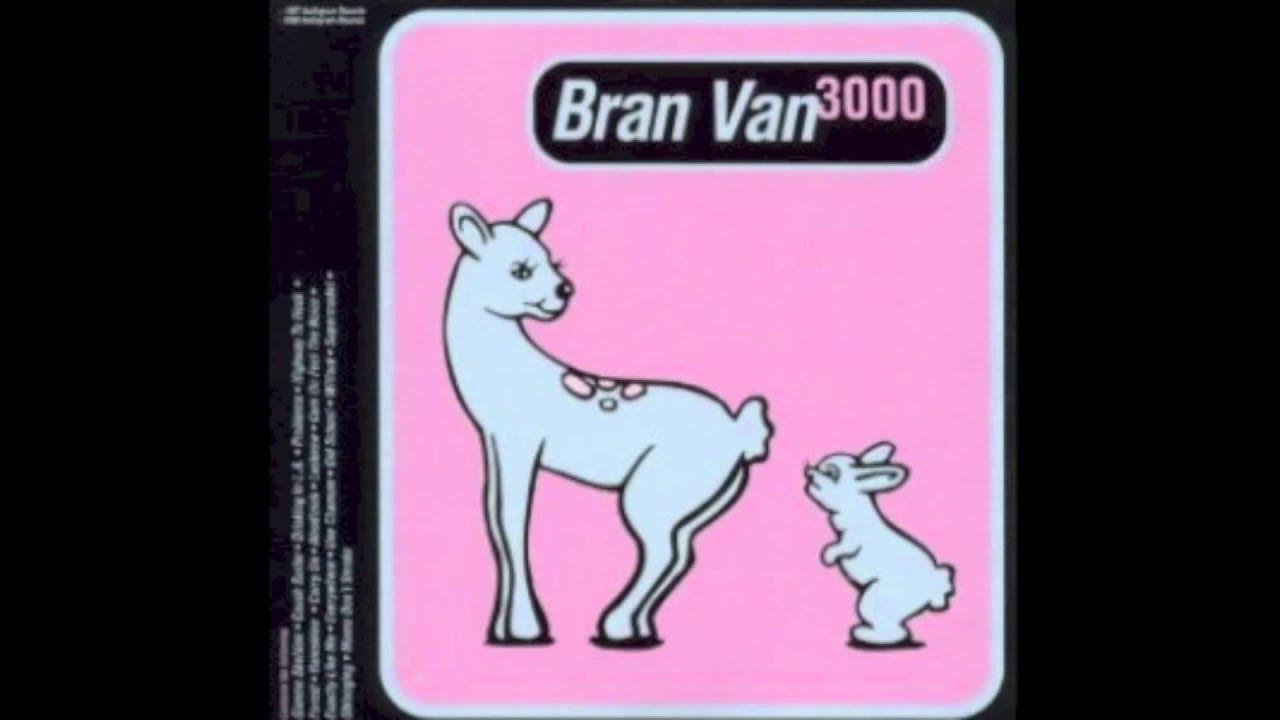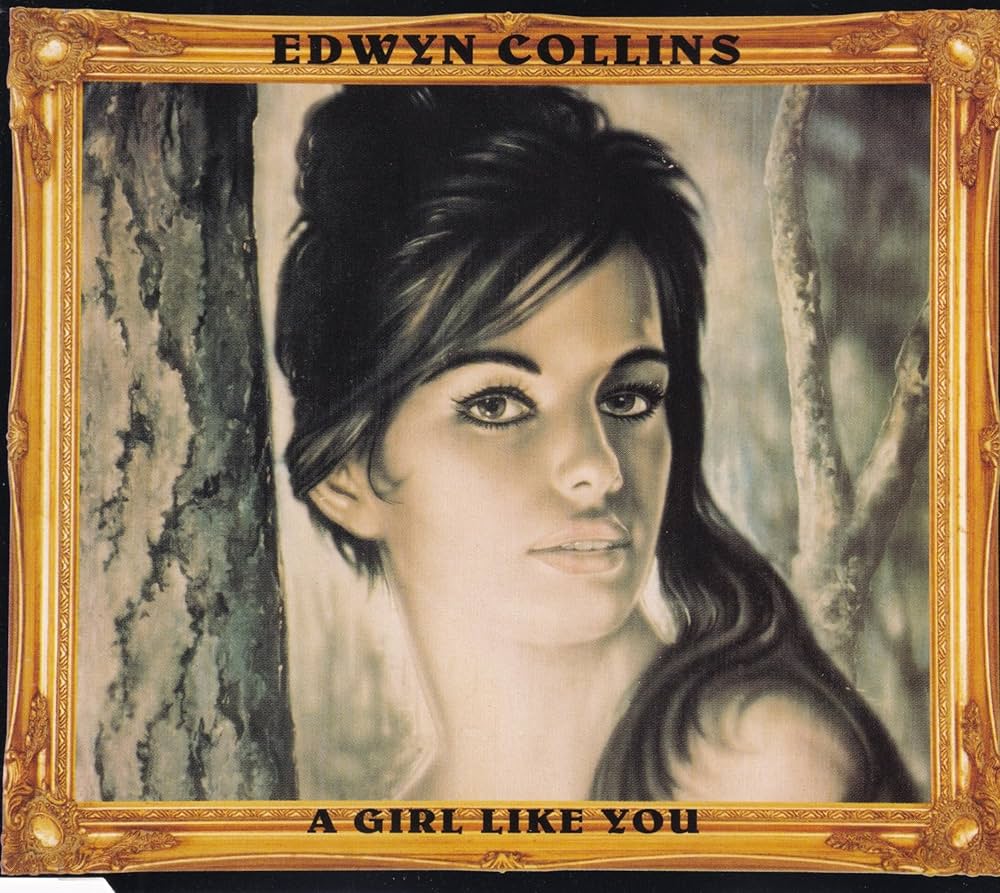 Hootie & The Blowfish’s “Only Wanna Be With You” is one of those rare songs that captures the essence of 1990s mainstream rock and pop, delivering a perfect blend of heartfelt emotion, catchy melody, and easygoing charm. Released as the second single from their massively successful debut album Cracked Rear View in 1994, the song quickly became a radio staple and propelled the band to stardom, cementing their place in the landscape of 90s alternative rock. “Only Wanna Be With You” remains emblematic of a decade marked by earnest lyricism and melodic rock that appealed to wide audiences across the globe.
Hootie & The Blowfish’s “Only Wanna Be With You” is one of those rare songs that captures the essence of 1990s mainstream rock and pop, delivering a perfect blend of heartfelt emotion, catchy melody, and easygoing charm. Released as the second single from their massively successful debut album Cracked Rear View in 1994, the song quickly became a radio staple and propelled the band to stardom, cementing their place in the landscape of 90s alternative rock. “Only Wanna Be With You” remains emblematic of a decade marked by earnest lyricism and melodic rock that appealed to wide audiences across the globe.
The band itself, hailing from South Carolina, combined a Southern sensibility with the jangly rock-pop sound that defined much of the early 90s era. Frontman Darius Rucker’s warm, soulful voice added a distinctive character to the band’s music, setting them apart from their contemporaries. While Cracked Rear View featured several hit singles, “Only Wanna Be With You” stands out as one of their most beloved and recognizable tracks, a song that encapsulates both the band’s accessible sound and their emotional resonance.
The song opens with a laid-back but insistent guitar riff, immediately establishing a groove that’s both mellow and inviting. The instrumentation is straightforward yet effective: clean electric guitars, steady drums, and a warm bassline provide a sonic foundation that supports Rucker’s expressive vocals. This musical arrangement is emblematic of the band’s approach—no excess or overproduction, just a focus on melody and sincerity that resonates on an emotional level.
Lyrically, “Only Wanna Be With You” is deceptively simple. The song revolves around themes of devotion, longing, and the singular focus of wanting to be with one special person. Its narrative voice is direct and unpretentious, making the song relatable and accessible to a wide audience. The repeated refrain “I only wanna be with you” drives home the central message, reinforcing the song’s focus on singular affection and emotional connection.
What makes the song particularly memorable is its warmth and genuineness. Unlike many love songs that resort to poetic or elaborate metaphors, “Only Wanna Be With You” opts for plainspoken sincerity, giving it a timeless quality. This honesty is amplified by Darius Rucker’s vocal delivery, which conveys a heartfelt earnestness and vulnerability. His voice carries the song with a natural ease, combining soulful grit with a gentle tone that invites listeners to share in the emotional experience.
One of the most interesting aspects of “Only Wanna Be With You” is the way it subtly weaves cultural references into its lyrics. The song famously mentions Bob Dylan, alluding to his influence and legacy, which reflects the band’s appreciation for classic songwriting and rock traditions. This nod to Dylan enriches the song’s texture, connecting the contemporary narrative of love and devotion to a broader musical heritage.
The song’s structure is straightforward yet highly effective. With its verse-chorus format, it creates a sense of familiarity that encourages repeated listening. The catchy chorus is particularly notable for its melodic strength and sing-along quality, which helped the song gain traction on radio and in live performances. The bridge provides a brief departure before returning to the central theme, maintaining interest while reinforcing the emotional tone.
“Only Wanna Be With You” was a commercial success, reaching high positions on various international charts. In the United States, it peaked within the top 10 on the Billboard Hot 100, showcasing the band’s broad appeal. The song’s success was a crucial factor in the overall popularity of Cracked Rear View, which went on to become one of the best-selling albums of the 1990s. Its warm, approachable sound helped bridge the gap between alternative rock and mainstream pop, appealing to a diverse demographic.
The accompanying music video further boosted the song’s popularity. Featuring the band in relaxed, casual settings interspersed with performance shots, the video emphasized the band’s approachable image and down-to-earth appeal. This visual presentation complemented the song’s lyrical simplicity and musical directness, helping audiences connect with the band on a personal level.
Culturally, “Only Wanna Be With You” captured a moment in the 1990s when rock music was shifting toward more personal, relatable themes. After the angst-ridden and sometimes abrasive grunge movement, Hootie & The Blowfish offered something softer and more optimistic without sacrificing authenticity. Their music, exemplified by this track, appealed to listeners looking for sincerity and melodic warmth rather than irony or aggression.
The song’s enduring appeal lies in its timeless message and inviting sound. Decades after its release, “Only Wanna Be With You” continues to resonate with listeners, whether as a nostalgic reminder of the 90s or as a straightforward expression of love and commitment. It remains a staple on classic rock and adult contemporary radio stations and is frequently included on playlists celebrating the best of 90s music.
Beyond its immediate success, the song also played a significant role in defining the band’s career. While Hootie & The Blowfish released other hits, including “Hold My Hand” and “Let Her Cry,” “Only Wanna Be With You” remains one of their signature songs. It encapsulates the band’s musical identity: accessible, warm, and emotionally sincere. For many fans, it represents the quintessential Hootie & The Blowfish sound and spirit.
From a songwriting perspective, Kimberley Rew’s work on “Walking On Sunshine” with Katrina & The Waves (no relation to this band) might seem like a distant cousin to “Only Wanna Be With You,” but the latter’s composition is grounded more in roots rock and straightforward pop-rock structures, showing the variety in 90s popular music that allowed different approaches to flourish.
One of the key factors that contributed to the song’s success was its ability to strike a balance between simplicity and depth. While the lyrics avoid complex metaphors or overly poetic language, they manage to communicate a genuine sense of emotion that many listeners found compelling. This balance made the song accessible to casual listeners while still resonating with those who appreciate thoughtful songwriting.
The song also benefits from the chemistry of the band members. The musical interplay between the guitar, bass, and drums creates a warm, inviting sonic environment that supports the vocal melody without overshadowing it. This collaborative dynamic is a hallmark of Hootie & The Blowfish’s sound, contributing to the cohesiveness and appeal of “Only Wanna Be With You.”
Over the years, the song has been covered and referenced by numerous artists and has appeared in various films, television shows, and commercials. These appearances have helped maintain the song’s visibility and introduce it to new audiences. Its use in media often evokes a sense of nostalgia or highlights moments of romantic realization, reinforcing its emotional impact.
Despite its success, the band faced criticism from some corners for their perceived mainstream appeal and lack of edginess compared to other 90s rock acts. However, “Only Wanna Be With You” and other hits challenged the notion that mainstream success requires sacrificing sincerity or quality. The song’s lasting popularity and the affection with which it is remembered testify to its genuine artistic merit.
In live performances, “Only Wanna Be With You” frequently serves as a crowd favorite. Its sing-along chorus and warm melody create an engaging atmosphere, inviting audience participation and shared emotional connection. The song’s live renditions often highlight Darius Rucker’s charismatic stage presence and the band’s tight musicianship, reinforcing their reputation as skilled and personable performers.
Thematically, the song’s focus on unwavering devotion resonates universally. It speaks to anyone who has experienced the desire to be close to a loved one, emphasizing the simplicity and power of that feeling. This universal theme, paired with the song’s melodic accessibility, ensures its place as a timeless love anthem.
The release of “Only Wanna Be With You” also coincided with the rise of alternative rock and the diversification of mainstream music. It demonstrated that accessible, melodic rock with heartfelt lyrics could thrive alongside grunge, hip-hop, and emerging pop trends. The song’s crossover appeal helped broaden the definition of 90s rock and expanded the audience for bands like Hootie & The Blowfish.
Musically, the track exhibits classic pop-rock elements: verse-chorus structure, catchy hooks, and a focus on melody and harmony. The guitar work is tasteful and melodic rather than flashy, complementing the vocals rather than competing with them. The rhythm section provides a steady, comforting pulse that underpins the song’s emotional message.
The song’s lyrics also reveal subtle layers upon closer listening. While primarily a love song, the references to music and culture—such as Bob Dylan—add texture and context. These allusions suggest a deeper connection between personal experience and cultural heritage, enriching the song’s narrative.
The success of “Only Wanna Be With You” helped establish Hootie & The Blowfish as one of the defining bands of the 1990s. Their blend of rock, pop, and soul elements appealed to a wide audience and influenced other artists exploring similar territory. The song’s popularity also helped pave the way for Darius Rucker’s later successful solo career in country music, showcasing his versatility as a vocalist and performer.
Critically, the song received mixed reviews at the time of release, with some praising its catchy melody and relatable lyrics, while others viewed it as too safe or formulaic. However, over time, it has gained appreciation as a sincere and well-crafted piece of songwriting that captures the spirit of its era.
The music video for “Only Wanna Be With You” further enhanced the song’s appeal. Featuring the band performing interspersed with scenes of everyday life, it emphasized the song’s themes of connection and simplicity. The video’s straightforward style matched the song’s unpretentious tone, helping viewers connect emotionally with the band and the message.
Over time, “Only Wanna Be With You” has also become associated with themes of nostalgia and youthful optimism. For many listeners who grew up in the 90s, the song evokes memories of first loves, friendships, and the excitement of young adulthood. This nostalgic quality adds to the song’s enduring relevance and emotional resonance.
The song’s legacy is reflected in its continued presence in popular culture. It remains a favorite on classic rock and adult contemporary radio formats and continues to be featured in movies, commercials, and television shows. Its timeless message and catchy melody ensure it remains relevant and cherished by new generations.
In summary, Hootie & The Blowfish’s “Only Wanna Be With You” is much more than a catchy 90s hit. It is a heartfelt, sincere expression of love and devotion, delivered with warmth and melodic charm. Its enduring popularity reflects its ability to connect deeply with listeners through simple yet powerful songwriting and memorable performances. The song stands as a defining anthem of its era and continues to inspire and uplift audiences around the world.


